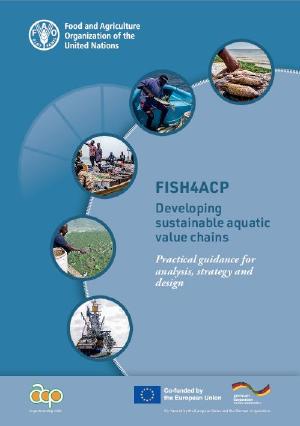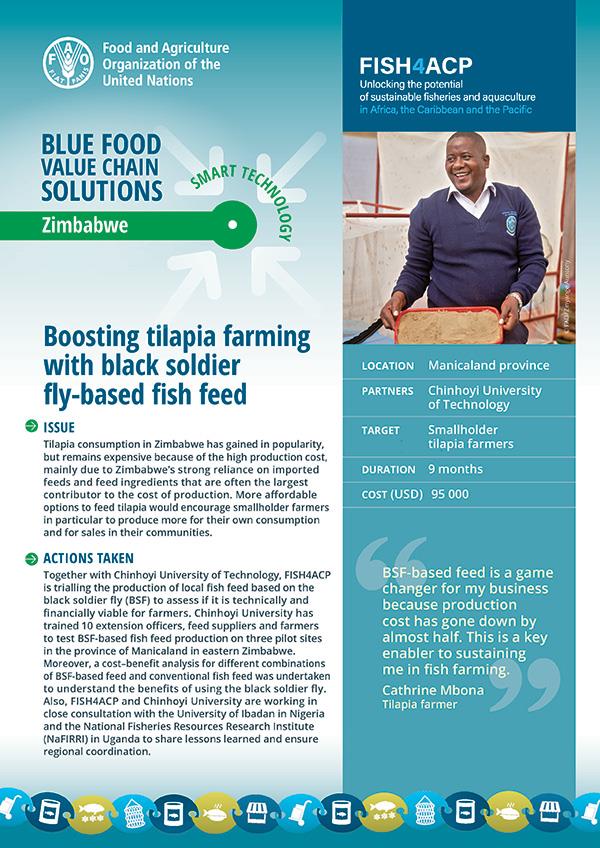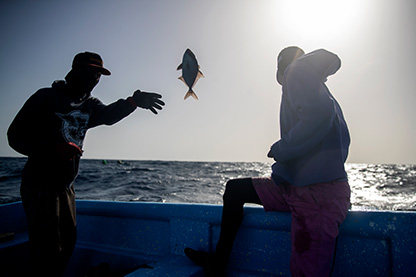Highlights

Photo gallery
Helping the Marshall Islands to make more out of tuna
Publications

FISH4ACP - Developing sustainable aquatic value chains. Practical guidance for analysis, strategy, and design
06/03/2025
Practical guide for the analysis and development of sustainable aquatic value chains, based on the methodology used by FISH4ACP, a global aquatic value chain development program, to analyse and develop fisheries and aquaculture value chains in 12 African, Caribbean and Pacific countries. It is part of a series of practitioner handbooks on sustainable value chain development within the framework of FAO’s sustainable food value chain (SFVC) approach.

Zimbabwe - Boosting tilapia farming with black soldier fly-based fish feed
07/10/2024
Fact sheet on how FISH4ACP is promoting the use of the black soldier fly as a sustainable and financially viable alternative fish feed in Zimbabwe.
12 value chains in 12 ACP countries

Where we work
FISH4ACP works with twelve fisheries and aquaculture value chains from African, Caribbean and Pacific countries on maximizing their economic returns and social benefits, while minimizing the detrimental effects on natural habitats and marine wildlife.










